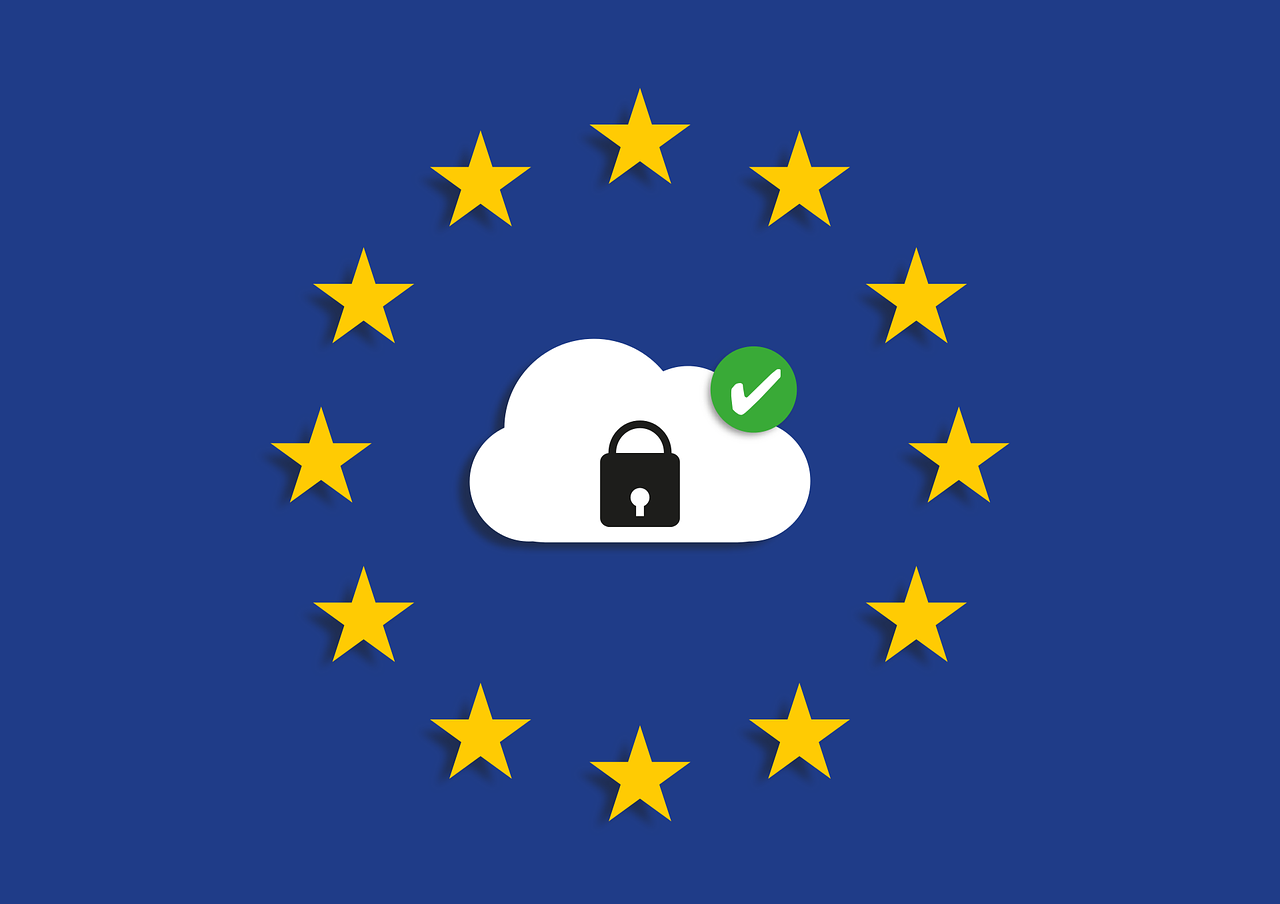In today’s digital age, personal data has become an invaluable asset for businesses across various industries. However, with data breaches and privacy concerns on the rise, it has become crucial for businesses to understand the laws and regulations surrounding personal data retention. Personal data retention refers to the practice of storing and keeping personal information collected by businesses. This article will explore the importance of personal data retention and its implications on businesses, addressing key questions such as how long personal data should be retained, the legal obligations surrounding data retention, and the steps businesses can take to ensure compliance. By gaining a comprehensive understanding of personal data retention, businesses can safeguard their reputation, protect consumer privacy rights, and avoid potential legal consequences.

Overview of Personal Data Retention
In today’s digital age, personal data retention has become a critical aspect for businesses to consider. Personal data retention refers to the practice of storing and maintaining individuals’ personal information, whether it is customer data, employee records, or any other personally identifiable information (PII). This article will provide an overview of personal data retention, its importance, legal and regulatory requirements, as well as benefits and challenges associated with it.
What is Personal Data Retention?
Personal data retention entails the collection, storage, and management of individuals’ personal information by organizations. This includes data such as names, addresses, email ids, phone numbers, social security numbers, financial details, and more. Businesses across various industries gather and retain such data to conduct their operations effectively, facilitate transactions, and provide tailored services.
Importance of Personal Data Retention
Personal data retention is of paramount importance for businesses to ensure compliance with data protection laws, preserve evidence for legal purposes, analyze trends and patterns, enhance customer service and personalization, and improve cybersecurity measures. By retaining personal data in a secure and organized manner, businesses can establish trust with their customers, make informed business decisions, and protect themselves from potential legal consequences.
Legal and Regulatory Requirements Related to Personal Data Retention
Organizations must adhere to various legal and regulatory requirements when it comes to personal data retention. These requirements vary depending on the jurisdiction and the nature of the data being retained. Some common regulations include the General Data Protection Regulation (GDPR) in the European Union, the California Consumer Privacy Act (CCPA) in the United States, and sector-specific regulations like the Health Insurance Portability and Accountability Act (HIPAA) for the healthcare industry. Failure to comply with these requirements can result in severe penalties and reputational damage for businesses.
Benefits of Personal Data Retention
Ensuring Compliance with Data Protection Laws
One of the primary benefits of personal data retention is ensuring compliance with data protection laws. By having a comprehensive and well-defined data retention policy in place, businesses can demonstrate their commitment to safeguarding personal information. This compliance not only protects businesses from legal liabilities but also helps build trust among customers and partners.
Evidence Preservation for Legal Purposes
Retaining personal data can be crucial for legal purposes, such as litigation, regulatory investigations, or internal audits. Organizations may need to produce evidence to support claims, refute allegations, or establish a timeline of events. Proper data retention practices, including preserving data in its original format and maintaining relevant metadata, can help in presenting accurate and reliable evidence.
Analyzing Trends and Patterns
Personal data retention enables businesses to analyze trends and patterns within the data they possess. By leveraging advanced analytics techniques, organizations can gain valuable insights into customer behaviors, preferences, and market trends. These insights can inform strategic decision-making, product development, and marketing strategies, ultimately leading to better business outcomes.
Enhancing Customer Service and Personalization
Retaining personal data allows businesses to enhance their customer service and personalization efforts. By having access to historical customer data, organizations can understand individual customer needs, preferences, and past interactions. This knowledge empowers businesses to provide customized experiences, offer relevant products or services, and build long-term customer relationships.
Improving Cybersecurity Measures
Personal data retention also plays a critical role in improving cybersecurity measures. When organizations retain personal data, they can invest in robust security protocols, encryption techniques, and data backup systems to protect the information from unauthorized access, breaches, or loss. By prioritizing data security, businesses can safeguard customer trust and mitigate risks associated with cyber threats.
Challenges Associated with Personal Data Retention
While personal data retention offers numerous benefits, businesses also face certain challenges in implementing and managing effective data retention practices.
Data Privacy Concerns
One of the primary challenges is addressing data privacy concerns. As personal data is collected and stored by businesses, there is a need to ensure appropriate consent, transparent privacy policies, and safeguards against misuse or unauthorized access. Privacy regulations, such as the GDPR, emphasize the importance of informed consent and robust data protection mechanisms to protect individuals’ privacy rights.
Storage and Infrastructure Costs
Retaining large volumes of personal data can result in significant storage and infrastructure costs for businesses. Storing and managing data securely requires dedicated resources, including server space, data centers, backup systems, and cybersecurity measures. These costs need to be factored in while developing a data retention strategy, especially for businesses with limited resources.
Unnecessary Data Accumulation
An accumulation of unnecessary data is another challenge associated with personal data retention. Sometimes businesses may retain data for longer than necessary or collect data that is not relevant to their operations. This accumulation not only increases storage costs but also increases the risks associated with data breaches and privacy violations. Implementing data minimization principles, such as regularly reviewing and deleting unnecessary data, can help mitigate this challenge.
Managing Data Breaches and Security Risks
As businesses retain personal data, they also face the continuous risk of data breaches and security threats. If not handled properly, a data breach can result in significant financial losses, reputational damage, and legal consequences for organizations. Implementing robust cybersecurity measures, conducting regular security audits, and having incident response plans in place are essential for mitigating these risks and ensuring prompt and effective responses in the event of a breach.

How to Develop a Personal Data Retention Policy
To address the aforementioned challenges and ensure compliant and secure personal data retention, businesses should develop a comprehensive data retention policy. This policy should outline the organization’s approach to managing personal data, including the following key considerations:
Identifying Relevant Data Categories
It is essential to identify the specific data categories that are relevant to the organization’s operations and legal requirements. These categories may include customer data, employee records, financial transactions, communication records, and more. By clearly defining these categories, businesses can focus their retention efforts on the most critical data.
Determining Retention Periods
Retention periods need to be established for each data category based on legal requirements, business needs, and industry best practices. Different types of data may have varying retention periods, and businesses should ensure compliance with applicable laws while considering operational requirements. For example, financial records may need to be retained for a longer period compared to general customer data.
Ensuring Data Accuracy and Quality
To maintain the integrity of retained personal data, businesses should implement measures to ensure its accuracy and quality. This includes regular data validation, verification, and cleansing processes. By maintaining accurate and high-quality data, organizations can make informed business decisions and comply with data protection principles.
Implementing Appropriate Storage and Security Measures
Businesses should have robust storage and security measures in place to protect the retained personal data. This includes encrypting sensitive data, implementing access controls, regularly backing up data, and monitoring for unauthorized access or suspicious activities. Adequate physical and virtual security measures should also be employed to prevent data breaches and unauthorized access.
Documenting the Policy
A comprehensive personal data retention policy should be documented and communicated across the organization. This policy should outline the purpose, scope, and procedures for data retention. It should also include information on data handling, security measures, employee responsibilities, and protocols for data disposal. Maintaining clear documentation ensures transparency and consistency in data retention practices.
Guidelines for Compliant Personal Data Retention
When developing and implementing a personal data retention policy, businesses should follow these guidelines to ensure compliance with data protection laws and regulations:
Understanding Applicable Data Protection Laws
Businesses must have a clear understanding of the applicable data protection laws and regulations within their jurisdiction. This includes familiarizing themselves with requirements related to data privacy, consent, data subject rights, and cross-border data transfers. By understanding these laws, organizations can align their data retention practices with legal obligations.
Adhering to Specified Retention Periods
Data retention periods should be strictly adhered to in accordance with applicable laws and regulations. By retaining data for the specified duration and disposing of it in a timely manner, businesses can avoid unnecessary legal risks and ensure compliance.
Obtaining and Managing Consent
Consent is a crucial aspect of data retention practices. Businesses should obtain explicit consent from individuals before collecting and retaining their personal data. It is essential to provide individuals with clear information about how their data will be used, stored, and shared. Additionally, organizations should have mechanisms in place to manage and update consent preferences as required.
Implementing Data Minimization Principles
Data minimization principles should be incorporated into personal data retention practices. This involves collecting and retaining only the necessary data that is directly relevant to the organization’s operations. By minimizing the amount and scope of data collected, businesses can reduce storage costs, privacy risks, and potential breaches.
Responding to Data Subject Requests
Data subjects have rights regarding their personal data, such as the right to access, rectify, or erase their information. Businesses should have processes in place to handle data subject requests promptly and effectively. This includes verifying the identity of the data subject, responding within specified timelines, and maintaining audit trails of such requests and actions taken.

Important Considerations for Businesses
In addition to the guidelines mentioned above, businesses should consider the following aspects when it comes to personal data retention:
Data Protection Impact Assessments
Conducting data protection impact assessments (DPIAs) can help organizations identify and mitigate risks associated with personal data retention. A DPIA involves evaluating the impact of data processing activities on individuals’ privacy rights and implementing necessary measures to reduce risks.
Cross-Border Data Transfers
For businesses operating in multiple jurisdictions, cross-border data transfers may be necessary. Organizations must ensure compliance with applicable laws and regulations, such as implementing appropriate safeguards for data transfers outside the European Economic Area (EEA) under the GDPR.
Vendor and Third-Party Agreements
When engaging vendors or third parties for data processing or storage purposes, businesses should establish clear agreements that define the responsibilities, obligations, and security measures related to personal data retention. These agreements should also address data breach notification procedures and liability in the event of a breach.
Employee Training and Awareness
Employees play a crucial role in data retention practices. Adequate training and awareness programs should be conducted to educate employees about data protection, confidentiality, and their responsibilities concerning personal data. Regular training sessions and updates on evolving data protection laws are essential to maintain compliance.
Consequences of Non-Compliance
Non-compliance with personal data retention regulations can have severe consequences for businesses. In addition to reputational damage and loss of customer trust, organizations may face fines, penalties, lawsuits, or even criminal charges. It is crucial for businesses to understand the potential risks and take proactive measures to ensure compliance.
Best Practices for Personal Data Retention
To establish effective and compliant personal data retention practices, businesses should consider implementing the following best practices:
Regular Data Audits
Conducting regular data audits helps identify and rectify any potential issues or vulnerabilities in the data retention process. Audits involve reviewing the categories of data being retained, assessing the accuracy and quality of the data, and identifying areas for improvement in storage and security measures.
Secure and Encrypted Storage
Personal data should be stored securely using encryption techniques and strong access controls. This ensures that the data remains confidential and protected from unauthorized access. Organizations should also regularly update and patch their storage systems to address any known vulnerabilities.
Data Anonymization and Pseudonymization
To further safeguard personal data, organizations can consider anonymizing or pseudonymizing certain data sets. Anonymization involves removing identifying information, while pseudonymization replaces identifiable data with artificial identifiers or pseudonyms. These techniques can help reduce privacy risks and still allow for analysis and research purposes.
Appropriate Data Disposal Methods
When personal data is no longer required, businesses should implement appropriate data disposal methods. This may include securely deleting digital data or physically destroying physical records. Disposal processes should be documented, and records should be retained to demonstrate adherence to data protection requirements.
Continuous Monitoring and Updates
Data retention practices should be regularly monitored and updated to align with evolving data protection laws and industry best practices. This includes staying informed about changes in regulations, conducting periodic risk assessments, and proactively addressing any identified gaps or vulnerabilities.
FAQs about Personal Data Retention
Q: What is personal data retention?
A: Personal data retention is the practice of collecting, storing, and managing individuals’ personal information by businesses or organizations.
Q: Why is personal data retention important for businesses?
A: Personal data retention is important for businesses as it helps ensure compliance with data protection laws, preserve evidence for legal purposes, analyze trends, improve customer service, and enhance cybersecurity measures.
Q: What are the legal requirements for personal data retention?
A: Legal requirements for personal data retention vary depending on the jurisdiction and industry. Regulations such as the GDPR and CCPA outline specific obligations for businesses to protect personal data and retain it for specified periods.
Q: How long should personal data be retained?
A: The retention period for personal data depends on various factors, including legal requirements, business needs, and the nature of the data. It is essential for businesses to determine and adhere to the appropriate retention periods for each data category.
Q: What are the risks of non-compliance with personal data retention regulations?
A: Non-compliance with personal data retention regulations can expose businesses to fines, legal liabilities, reputational damage, and loss of customer trust. Additionally, organizations may face legal consequences, including lawsuits and criminal charges.
Conclusion
Ensuring proper personal data retention is crucial for businesses today. By understanding the importance of personal data retention and complying with applicable laws and regulations, businesses can protect themselves and their customers. Developing and implementing a robust personal data retention policy, in consultation with a knowledgeable lawyer, is a smart step towards safeguarding personal data and mitigating legal risks. Remember, for expert legal advice tailored to your specific business needs, contact our skilled team of lawyers today.
